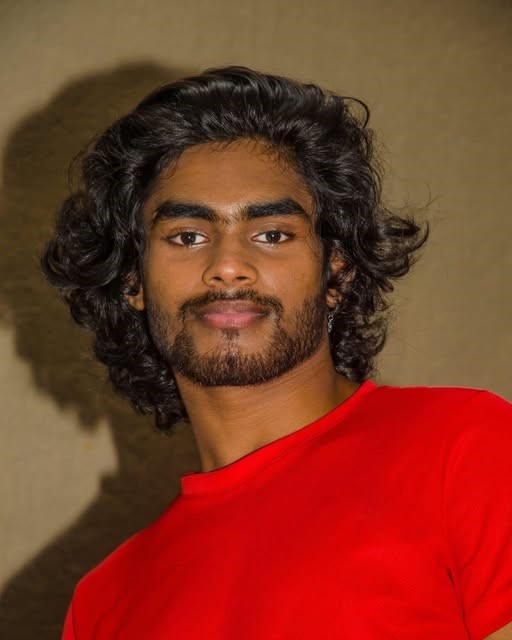Identity Politics, Sexual Politics, and Violence against People in Sri Lanka
ASIA--PACIFIC, 7 Apr 2025
Sanjeewani Rupasinghe – TRANSCEND Media Service
4 Apr 2025 – Sri Lanka’s political and social landscape has long been entangled with identity politics, sexual politics, and systemic violence. From the 1971 insurrection and the 1988–89 uprisings to the decades-long civil war, the country has endured cycles of brutality, state-sponsored impunity, and a deep disregard for human life. These dark chapters have perpetuated a culture of violence and silence.
A Death in Custody: A Symptom of a Deeper Crisis
A recent incident at the Welikada Police Station has thrown these persistent issues back into the spotlight. A young man, reportedly suffering from mental health challenges, died while in police custody. According to the police’s official statement, he repeatedly hit his head and arms against the walls, leading to fatal injuries.
But this explanation raises more questions than answers. Is it even believable? If the man was mentally unwell, why wasn’t he protected while under state care? This tragic death not only highlights systemic neglect but also exposes the disturbing gap between authority and accountability within law enforcement. How can one person be left unprotected by an entire police station?
Suspicion Without Evidence
Reports suggest that the young man had entered a private residence after being followed by a group of men in a three-wheeler. Why was he chased? Some speculated he might have been a thief, but there is no concrete evidence to support that claim. Even if he were guilty of theft, police brutality and custodial death are never justifiable. In a democratic society, law enforcement should be governed by principles of justice, human rights, and due process—not by suspicion or personal bias.
A Pattern of Violence
Sadly, this case is part of a larger pattern. Sri Lanka has a well-documented history of custodial abuse and police brutality. Over the years, many suspects have been tortured, killed, or subjected to cruel treatment while in custody, with police often claiming that the victims tried to attack officers or retrieve hidden weapons. These narratives are routinely accepted without independent investigation, allowing the cycle of abuse to continue unchecked.
The silence surrounding this violence is not due to ignorance. It is rooted in fear. For decades, the public has witnessed these injustices, but speaking out often leads to further violence or retaliation.
The Politics of Fear and Silence
For years, Sri Lanka’s political structures have been built on a foundation of violence and impunity. Many individuals responsible for heinous crimes during the civil war were later hailed as “war heroes”, with some even being released from serious charges like rape and murder. This normalization of violence sends the message that violence, when tied to power, is untouchable.
This mindset has deeply infected public institutions, including the police, who often operate with a sense of immunity—above the law, free from consequences.
Gender, Sexuality, and Marginalized Identities
Another significant issue is the possibility that the victim in this case may have been a member of the LGBTQ+ community. In Sri Lanka, sexuality remains a deeply taboo subject, and non-normative identities are often targets of discrimination, humiliation, and violence.
LGBTQ+ individuals in Sri Lanka regularly face police harassment, workplace bullying, and other forms of abuse. Societal stereotypes around gender and sexual orientation are entrenched, making these communities particularly vulnerable to mistreatment. Whether someone is mentally ill, queer, rural, poor, or from a marginalized religion or ethnic group, no one deserves to be brutalized. The role of the police is clear: to protect all citizens, regardless of their identity.
Where Is Accountability?
To date, no disciplinary action has been taken against the Officer-in-Charge (OIC) involved in this incident. The Minister of Police has remained silent, effectively protecting the system rather than addressing the urgent need for reform.
This raises a fundamental question:
In a democracy, what is the role of a government if it cannot protect its own citizens from its own institutions?
The Need for Structural Change
The recent election results showed a strong desire for change among the Sri Lankan public. However, electing new leaders is only the beginning. Sri Lanka urgently needs structural reforms—particularly within the police and judiciary. Accountability mechanisms must be established and enforced. Human rights must be upheld, without exception.
Most importantly, the public must reject silence and take action. The culture of fear and violence must be confronted head-on, or it will continue to stifle progress.
A Crossroads for the Nation
Sri Lanka stands at a critical juncture. The question is clear: Do we continue the legacy of fear, violence, and silence? Or do we work together to build a future rooted in justice, dignity, and equal protection for all?
This choice does not belong to politicians alone—it belongs to all of us.
“We are not in the traffic, we ARE the traffic,” said Deepa Mehta.
__________________________________________________________
 Sanjeewani Rupasinghe is a Senior Lecturer in Philosophy at the University of Kelaniya, Sri Lanka. She is currently pursuing her PhD at the University of Hull in the United Kingdom. With over 20 years of experience, she has been a dedicated advocate against violence toward women and marginalized communities in Sri Lanka.
Sanjeewani Rupasinghe is a Senior Lecturer in Philosophy at the University of Kelaniya, Sri Lanka. She is currently pursuing her PhD at the University of Hull in the United Kingdom. With over 20 years of experience, she has been a dedicated advocate against violence toward women and marginalized communities in Sri Lanka.
Tags: Cultural violence, Direct violence, LGBTQI, Sexual Violence, South Asia, Sri Lanka, Structural violence
This article originally appeared on Transcend Media Service (TMS) on 7 Apr 2025.
Anticopyright: Editorials and articles originated on TMS may be freely reprinted, disseminated, translated and used as background material, provided an acknowledgement and link to the source, TMS: Identity Politics, Sexual Politics, and Violence against People in Sri Lanka, is included. Thank you.
If you enjoyed this article, please donate to TMS to join the growing list of TMS Supporters.

This work is licensed under a CC BY-NC 4.0 License.
Join the discussion!
We welcome debate and dissent, but personal — ad hominem — attacks (on authors, other users or any individual), abuse and defamatory language will not be tolerated. Nor will we tolerate attempts to deliberately disrupt discussions. We aim to maintain an inviting space to focus on intelligent interactions and debates.
